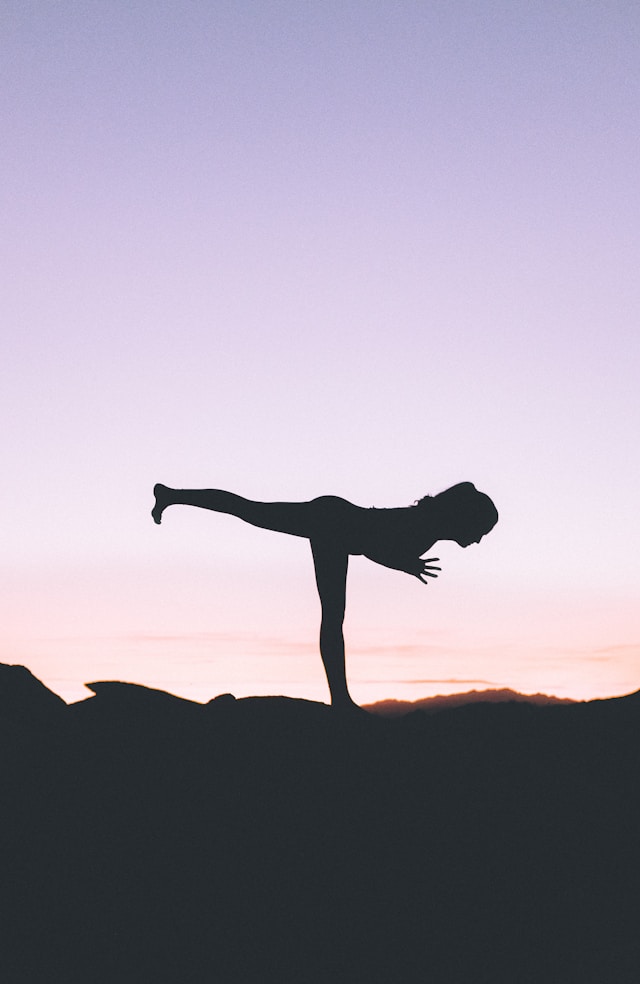Table of Contents
Introduction to Hatha Yoga
Hatha Yoga, a branch of yoga, is known for its emphasis on physical postures (asanas) and breath control (pranayama). It aims to prepare the body for more profound spiritual practices such as meditation. Hatha Yoga originated in ancient India as a pathway to balance and harmonize the mind, body, and spirit.
The Origins of Hatha Yoga
Historical Background
Hatha yoga has evolved over centuries, tracing back to ancient India. It was initially mentioned in the 15th-century text “Hatha Yoga Pradipika,” highlighting its age-old tradition and the depth of knowledge it encompasses.
The Philosophy Behind Hatha Yoga
At its core, Hatha Yoga is more than just physical exercise; it is a profound philosophy that seeks to unite the sun (ha) and moon (tha), representing the duality in our lives, to achieve balance and enlightenment. This philosophy encourages practitioners to explore their limits, cultivate self-awareness, and foster peace.
Core Practices of Hatha Yoga
Hatha Yoga encompasses a variety of practices, with asanas and pranayama being the most prominent. These practices are designed to improve flexibility, strength, and balance while enhancing respiratory efficiency and calming the mind.
Benefits of Hatha Yoga
The benefits of Hatha Yoga extend beyond physical well-being to include enhanced mental clarity, reduced stress, and a more profound sense of inner peace. Regular practice can lead to significant improvements in overall health and vitality.
Getting Started with Hatha Yoga
Beginning a Hatha Yoga practice involves finding a qualified teacher, choosing the right class level, and approaching the practice with an open mind and patience. It is important to listen to your body and progress at your own pace.
Essential Hatha Yoga Asanas
Several key asanas in Hatha Yoga form the foundation of the practice, including the Mountain Pose, Downward Facing Dog, and the Warrior series. Each asana has specific benefits and helps to build the groundwork for a strong practice.
The Role of Breath in Hatha Yoga
Breath, or pranayama, is central to Hatha Yoga. Techniques such as Ujjayi (Victorious Breath) and Anulom Vilom (Alternate Nostril Breathing) are integral to mastering control over the breath, which leads to better mental and emotional balance.
Hatha Yoga for Mindfulness and Meditation
Hatha Yoga is a powerful tool for mindfulness and meditation. It helps practitioners quiet the mind, focus on the present moment, and cultivate a deep sense of inner calm.
Overcoming Challenges in Hatha Yoga Practice
Newcomers to Hatha Yoga may face challenges such as flexibility issues or difficulty quieting the mind. Persistence, patience, and a gentle approach are crucial to overcoming these obstacles.
The Science of Hatha Yoga
Research supports the many benefits of Hatha Yoga, from lowering blood pressure and reducing stress to improving sleep patterns and enhancing overall quality of life.
Related Article: 7 Best Yoga Exercises For Men and Women
Integrating Hatha Yoga into Daily Life
Hatha Yoga is not just a practice for the mat; its principles can be integrated into daily life, encouraging mindfulness, compassion, and a balanced approach to life’s challenges.
Advanced Hatha Yoga Practices
For those looking to deepen their practice, advanced asanas and techniques offer a path to further growth and exploration within Hatha Yoga.
Nutrition and Hatha Yoga
A holistic approach to Hatha Yoga includes attention to nutrition, focusing on a balanced, nourishing diet that supports the physical and energetic demands of the practice.
Community and Hatha Yoga
The Hatha Yoga community provides a network of support, shared experiences, and collective wisdom, enriching individual practice through shared connections.
Future of Hatha Yoga
As it adapts to contemporary needs, the future of Hatha Yoga looks promising. It will continue to offer a path to balance and well-being for individuals worldwide.
FAQs
Is Hatha Yoga suitable for beginners?
Yes, Hatha Yoga is an excellent starting point for beginners due to its gentle pace and focus on foundational poses.
How often should I practice Hatha Yoga?
Consistency is key. Practicing several times a week can offer significant benefits, though even once a week can make a difference.
Can Hatha Yoga help with stress?
Absolutely. Hatha Yoga is known for its stress-relieving properties, thanks to the focus on breath and mindfulness.
Do I need special equipment for Hatha Yoga?
A yoga mat is recommended for comfort and stability, but beyond that, no special equipment is necessary.
Can Hatha Yoga improve flexibility and strength?
Yes, regular practice of Hatha Yoga can significantly improve both flexibility and strength over time.
Conclusion
Hatha Yoga offers a comprehensive path to physical health, mental clarity, and spiritual growth. Whether you are new to yoga or looking to deepen your practice, Hatha Yoga invites you on a journey of self-discovery and transformation.
Related Article: Incredible Yoga Poses For Men Over 50







